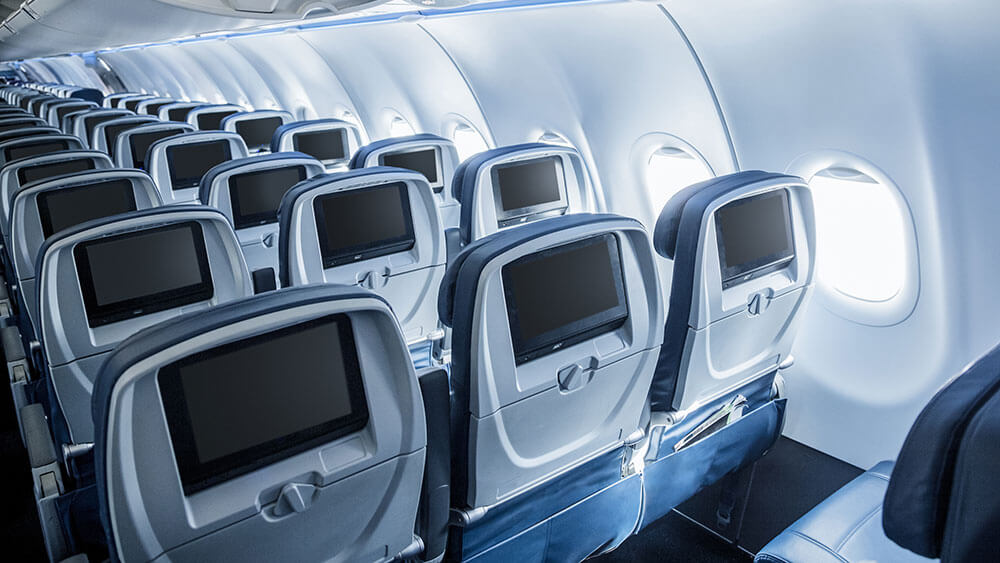
Destinations, and other travel industry businesses like airlines, are preparing for or already dealing with empty seats and fewer travelers as the COVID-19 crisis continues.
Takeaways:
- Destinations are reeling from recent events concerning COVID-19.
- Convention centers have stepped up cleaning practices and the number of hand-sanitizing stations.
- Destinations will need to rethink their marketing both during and after the crisis.
At the end of the first week of March, public officials across the Bay Area in California — San Francisco, San Mateo, and Santa Clara Counties — made a move with serious implications for the business events industry: They recommended halting non-essential group activities for a two-week period. In San Francisco, officials banned those events at city-owned facilities, a list that includes the Moscone Center. Joe D’Alessandro, president and CEO of San Francisco Travel, told Convene that the recommendations “reflect [the officials’] responsibility to keep the public safe and healthy.”

Joe D’Alessandro
“Like [the mayor and other officials involved in the decision], we recognize that this will have an impact on San Francisco’s largest industry, tourism, which supports 86,111 jobs in businesses large and small and generated $819.7 million in taxes and fees for the City of San Francisco in 2019,” D’Alessandro said. “We recognize that the COVID-19 situation is evolving rapidly and hope that the recommendations will be lifted soon so that all businesses can begin the process of economic recovery.”
Five days later, the stoppage on large public gatherings was spreading across the U.S. In the state of Washington, Governor Jay Inslee announced a ban on gatherings of more than 250 people in King, Pierce, and Snohomish Counties (the Seattle metropolitan area) through the end of March. And in Washington, D.C., DC Health recommended that all events of more than 1,000 people be postponed or cancelled. Events DC announced plans to suspend operations and services from the close of business on March 13 through March 31. The move, made “out of an abundance of caution to its staff, their families, and customers,” came after news that individuals who had attended a conference that ended on March 2 at the Walter E. Washington Convention Center tested positive for COVID-19.
Other destinations are reeling from the coronavirus. More than 40,000 health-care professionals did not travel to Orlando for HIMSS. SXSW, which meant around $355 million of economic impact to the city of Austin last year, will not happen. The Inspired Home Show, estimated to bring around 60,000 people to Chicago in mid-March, is off. Around the country, other events have been canceled or postponed until the fall.
“Businesses like to control their destinies, but [the coronavirus] is a wake-up call that we all have to deal with the unknown,” Don Welsh, CEO of Destinations International, told Convene. “None of us like being in the position of the unknown.”
Enhanced Cleaning Efforts
While there is uncertainty about the virus, event venues are working to offer reassurance. Convention centers across the U.S. are stepping up their cleaning practices, increasing hand sanitizing stations, displaying signage with recommended practices for hand washing and cough covering, and making other moves to maintain germ-free environments.

Casandra Matej
In San Antonio, for example, officials at the Henry B. Gonzalez Convention Center have placed more than 34 units placed in strategic locations, with another seven units expected this week. The staff is disinfecting high contact areas such as railings, doorknobs, and restrooms at a minimum of twice per day and as needed based on event traffic patterns, and officials are participating in a weekly call with the Health Department to receive updates. Casandra Matej, president and CEO of Visit San Antonio, told Convene that the city “has been significantly and negatively impacted by the COVID-19 developments.”
“At this time, larger citywide groups have not canceled,” Matej said. “The trend is looking at options for postponement, or what cancellation costs would be incurred, or keeping the meeting moving forward as planned. Several in-house events that were being hosted by our local hotel partners and restaurants in March have been canceled. Visit San Antonio continues to communicate with affected partners, working to complement their efforts to handle any negative consequences.”
Shifting Strategies

Shant Apelian
While the coronavirus impacts have been accelerating in recent weeks in the U.S., tourism officials in Los Angeles already were preparing for a downturn in leisure travel due to the halting of travel between China and the U.S. in early February. Shant Apelian, director, corporate communications, Los Angeles Tourism & Convention Board, told Convene that China is the city’s No. 1 overseas market. Tourism Economics created a model that forecasts a potential loss of 325,000 Chinese visitors to L.A. in 2020, which would equate to a loss of $921 million in direct spending.
“Recognizing the immediate impact this virus will have on the national and Los Angeles tourism economies, our marketing team is strategizing tactics to offset visitation loss,” Apelian said. “Like many in our industry, we are pausing efforts in China at this time and plan to fully resume when the situation stabilizes.”
While the COVID-19 situation in China is showing signs of stabilizing, other parts of the world are beginning to deal with the virus. As airlines cancel routes and make adjustments, Matej told Convene that Visit San Antonio is preparing for “a reset regarding how the destination is marketed.”
“While the international and national traveler remains an aspiration, the city ranks as one of the country’s top drive markets,” Matej said. “Indeed, more than 70 percent of the leisure travelers who come to San Antonio do so from within the state of Texas. Visit San Antonio is evolving its marketing for the spring and summer to reach the regional traveler who may be more inclined to travel closer to home during this disruptive climate for travel.”

Don Welsh
A ‘Silver Lining’ and Hope on the Horizon
As destinations work to spread the message that they are still open for business, Welsh has noticed that they are also working together. “There is a silver lining in every crisis,” Welsh said. “Over the past two weeks, there has been a level of industry collaboration that I have never seen before. When this crisis is over, these collaborative relationships will stay in place. We will get through this. Things will get better.”
When they do, Welsh believes that there will be a renewed appreciation for the value of travel. “My belief is that the relevance and importance of meeting attendees, business travelers, and leisure travelers will be taken to a much higher level of respect than they were 30 days ago,” he said. “We can never take it for granted.”
David McMillin is a Convene associate editor.
What Events Professionals Need to Know About COVID-19
PCMA has created a COVID-19 resources page to help event professionals find reliable information about the outbreak and to share events industry-related resources to ensure they are prepared.
